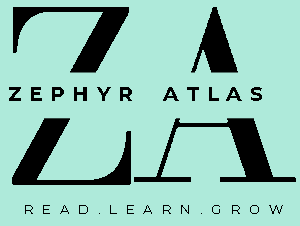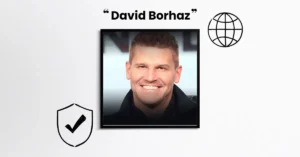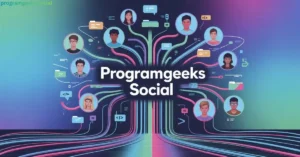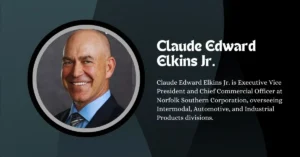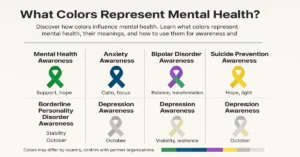Key Intake
Q1: What is secular homeschooling vs religious homeschooling?
Secular homeschooling avoids faith-based teaching, while religious homeschooling uses doctrine as part of academics.
Q2: How to find secular homeschool curriculum?
Look at programs like Torchlight, Build Your Library, or Khan Academy each avoids religious bias.
Q3: Why choose secular homeschooling for kids?
It gives flexibility, inclusivity, and evidence-based education without faith conflicts.
Q4: Which states support secular homeschooling rules?
All states allow it, but oversight varies, New York is strict, Texas is light.
Q5: What subjects fit secular homeschooling best?
Science, history, and literature thrive with unbiased teaching methods.
Q6: How secular homeschooling compares to online schools?
Homeschooling is parent-led and flexible; online schools are structured and state-approved.
Table of Contents
Introduction
Homeschooling is growing fast, over 3.1 million U.S. students now learn at home (NHERI, 2024). But one question keeps coming up, what is secular homeschooling? Many parents want freedom from religious influence, yet most curricula are faith-based. That gap leaves families searching for neutral, inclusive, and flexible options.
The truth is, secular homeschooling is about education without religious doctrine. It means choosing materials that focus on academics, evidence-based learning, and inclusivity. According to the Coalition for Responsible Home Education, families choosing secular paths often do so for social fit, critical thinking, and adaptability.
Quick Answer
Secular homeschooling is non-religious home education that uses neutral curriculum and evidence-based resources. It focuses on academics, inclusivity, and real-world skills, without faith-based instruction.
This means parents rely on unbiased materials, humanist teaching strategies, and culturally diverse resources to guide learning.
Secular vs. Religious Homeschooling

Secular homeschooling differs by content, intent, and teaching style:
- Secular → Evidence-driven, inclusive, neutral on faith.
- Religious → Uses faith as the core lens for science, history, and values.
- Overlap → Both allow parent control, but motivations differ.
Example: A secular science lesson explains evolution through biology standards. A religious one may frame it within creationist belief.
Why Families Choose Secular Homeschooling?
Parents often turn to secular homeschooling for three reasons:
- Inclusivity: It works for mixed-belief households, progressive families, or interfaith parents.
- Academic Neutrality: Focus on critical thinking and evidence-based teaching.
- Flexibility: Space to adapt for special needs, social learning, or global perspectives.
A 2023 Pew Research report showed 37% of homeschoolers cite “nonreligious motivations” as their primary driver.
Secular Curriculum Options That Work
Finding a good secular curriculum can feel tricky. Most top-selling homeschool packages still weave in religious undertones. Here are trusted neutral sources:
- Outschool: Live online classes with diverse teachers.
- Build Your Library: Literature-rich, history-grounded, secular approach.
- Torchlight: Focuses on critical thinking, social-emotional learning.
- Khan Academy: Free, evidence-based online platform.
Tip: Always preview curriculum samples. Even “neutral” programs may have hidden faith elements.
Legal Rules: Which States Support Secular Homeschooling?

Homeschool law varies by state. Here’s the short view:
- Strict Oversight: New York, Pennsylvania, Massachusetts.
- Moderate Oversight: Florida, Ohio, North Carolina.
- Minimal Oversight: Texas, Oklahoma, Alaska.
Secular homeschooling is legal everywhere in the U.S., but states differ on record-keeping, reporting, and testing. Always check your state’s Department of Education.
Secular Homeschooling for Mixed-Belief Homes
Many parents ask: how do you balance values without conflict?
Secular homeschooling provides neutral ground:
- Lessons exclude religious doctrine.
- Parents can still discuss personal beliefs separately.
- Children engage in open dialogue without curriculum bias.
Think of it as building a shared academic foundation, while keeping spiritual teaching private.
Special Needs and Inclusive Learning
Secular homeschooling adapts well for children with special needs. Why? Because parents can:
- Choose therapies alongside academics.
- Use individualized education plans (IEPs) at home.
- Focus on real-world pacing without one-size-fits-all pressure.
Case Study: One parent with a dyslexic child used Khan Academy + audiobooks, reporting faster literacy growth than in public school.
How Secular Homeschooling Compares to Online Schools
Online schools often look similar but here’s the catch:
- Online schools: Typically state-run, with standardized testing and oversight.
- Secular homeschooling: Parent-led, with total flexibility and resource freedom.
Both can be blended, many families use secular homeschooling as the base, then add accredited online courses for transcripts.
Subjects That Fit Secular Homeschooling Best

Secular homeschooling works across subjects, but especially shines in:
- Science: Evolution, climate, human biology taught factually.
- History: Global, multi-perspective, culture-rich approaches.
- Literature: Diverse voices and critical thinking.
Even math benefits applied projects link numbers to real-world contexts, not doctrine.
Sources
- Pew Research Center: A 2025 report providing updated statistics and insights into U.S. homeschooling trends.
- Admissionsly: Homeschooling Statistics: 2025 breakdown with demographic and growth data.
- National Center for Education Statistics (NCES): Federal data on homeschooled children and parental motivations.
- Harvard Gazette: Expert analysis highlighting both benefits and potential risks of homeschooling.
- The Atlantic: A cultural perspective on the rise of homeschooling without religious influence.
Conclusion
In the end, what is secular homeschooling comes down to this: it’s about giving children a strong, inclusive education free from religious influence. By focusing on evidence-based learning, diverse perspectives, and flexible curriculum choices, families can create a neutral environment where kids thrive academically and socially.
Author Bio
Rachel Merton is an Independent education researcher and homeschooling consultant with 12+ years of experience helping families choose secular curricula and navigate state laws.
For more detailed information. We highly recommend watching! What is Secular Homeschool?
